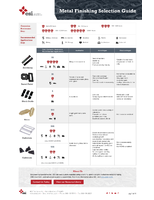Smart Grids Make Sustainable Cities

ABB and a consortium of partners in southern Germany are trying to create a sustainable power network, integrating clean energy generated by solar panels, wind turbines, fuel cells and other sources of distributed generation, and giving grid operators real-time information about supply and demand throughout the entire power network.
Zurich, Switzerland, February 20, 2009 ---ABB is a partner in an award-winning smart grid project to cut energy consumption and minimize CO2 emissions by integrating an entire power grid system - generation, distribution and consumption - into a single, interactive real-time network.
Known as MEREGIO, the project is currently under development for pilot deployment in the Karlsruhe-Stuttgart region of southern Germany, one of the most densely populated areas of the country and widely considered Europe's biggest manufacturing and high-tech hub.
The objective of the project is to create an optimized and sustainable power network that reduces CO2 emissions to as close to zero as is technically feasible and humanly possible - a so-called Minimum Emissions Region (MEREGIO).
The solution will integrate clean energy generated by solar panels, wind turbines, fuel cells and other sources of distributed generation and provide the grid operator with real-time information about the entire power network in terms of supply and consumer demand.
This will enable the operator to predict power flow, adapt rapidly to changing situations, send price signals to the consumer to encourage demand or restrain it if there is risk of a bottleneck, and create a regional energy market that incorporates end customers.
Consumers will be able to monitor their energy consumption and CO2 footprint, respond to price signals and adapt consumption according to price and availability, and sell surplus power from their own generators to the grid when price conditions are most favorable.
Award-winning concept
MERIGIO is a collaborative project between ABB and consortium partners IBM, SAP, EnBW (Germany's third largest utility), Systemplan Engineering and the University of Karlsruhe.
Recently selected by the German Federal Ministry of Economics and Technology as a winner of the "E-Energy: ICT-based Energy System of the Future" award, the pilot will incorporate about 1,000 households, industrial consumers, generating units and energy storage units, each equipped with a smart meter.
ABB's role in the project is to develop and install the network control system including new functions for optimal integration of decentralized generation as well as interfaces to automated meter reading and commercial marketplace systems.
The solution will be based on ABB's Network Manager, the world's leading energy management platform with more than 400 installations worldwide. ABB has successfully completed a number of smart grid projects in Europe, North America and Asia and is currently involved in numerous other pilot projects in various countries and regions.
ABB (www.abb.com) is a leader in power and automation technologies that enable utility and industry customers to improve performance while lowering environmental impact. The ABB Group of companies operates in around 100 countries and employs about 120,000 people.
Did you know?
Distributed power generation generates electricity from many small energy sources, rather than relying on a single source such as a large coal, nuclear, hydropower or gas-powered plant. Large plants do offer economies of scale, but usually have to transmit the electricity they generate over long distances. Distributed generation reduces the amount of energy lost in electrical transmission because the electricity is created very near where it is used, sometimes even in the same building. The size and number of power lines needed is also reduced.




